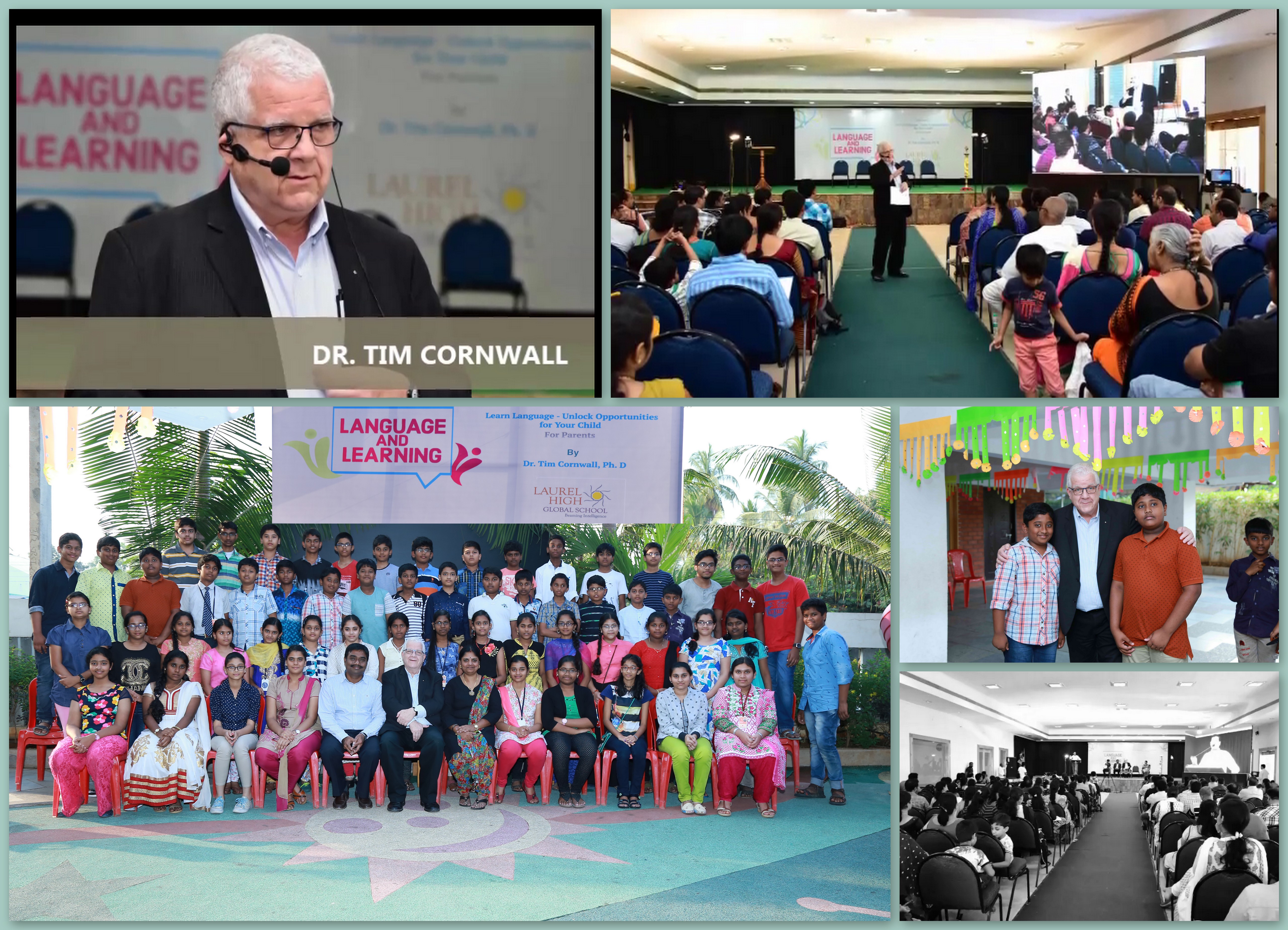2019-06-08 15:51:27

Laurel High Global School philosophy is grounded on the words of Plato “Do not train a child to learn by force or harshness; but direct them to it by what amuses their minds, so that you may be better able to discover with accuracy the peculiar bent of the genius of each.”
Dr Tim Cornwall from Canada, associates of LHGS, an expert in Adult Education, Royal Melbourne Institute of Technology University. Dr Tim has published textbooks – ‘Speaking First’ and ‘Take Off’ with MacMillan Press. A Distinguished Toastmaster (DTM) and Past Division Governor for Toastmasters, conducted exclusive workshop Language and Learning for Parents on – ‘What I would want to know about learning English if I were a parent’.
The drive to play is so intense that children love to engage in play and is fun for them. Researches in the Early Childhood Care and Education revealed that these playful activities benefit the development of the whole child across social, cognitive, physical, and emotional domains. Indeed, play is such an instrumental component to healthy child development and it has to be a central component in developmentally appropriate educational practices at the early year foundation stage.
He emphasised on research that says ‘families are an integral part of language development; they represent the child’s first and foremost means to access language’. Gunning reiterated that achieving educational outcomes (regarding literacy specifically) cannot be done only at school, it is a responsibility shared by all citizens and, most importantly, “parents… need to become partners. Researchers focused on speech perception and language acquisition, the data suggest that infants’ abilities to discriminate the fine-grained acoustic events that underlie speech, shown early in development, play an important role in language acquisition.[1]
The acquisition of language is one of the more remarkable achievements of early childhood. Children’s language skills reflect not only their cognitive abilities but also the opportunities to hear and use language their environments have provided.[2]
[1] “Kuhl_LLD_2005.Pdf.”
[2] “Language Development and Literacy | Language Development at an Early Age.”